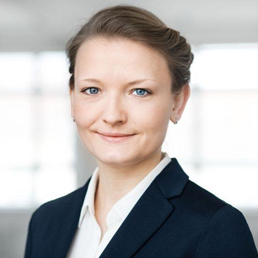
finished
Values and cultural norms for positive aging A Polish-German comparison

principal investigator / project leader
Ph.D. / Associate Professor
project value: EUR 55, 350
funding source: Deutsch-Polnische Wissenschaftsstiftung (DPWS)
discipline: psychology
location: Warsaw
duration: 2013 2014 2015 2016
One of the main reasons for scientific research is to challenge myths. We used to think that wellbeing of retired people depends on the amount of their pension. However, global rankings based on combination of financial and wellbeing indices show a much more complicated picture. Thus, cultural as well as individual resources probably play a crucial role in the way people adapt to retirement. Researchers from SWPS University and Freie Universität Berlin were looking for optimal trajectories for this adaptation, wondering whether it may be the same for Polish and German retirees.
Research Project
Values and cultural norms for positive aging
A Polish-German comparison
Research Unit


Grant AmountEUR 55, 350
Funding Source

Duration of Research Project: 2013–2016
One of the main reasons for scientific research is to challenge myths. We are used to thinking that psychological wellbeing of retirees depends on the amount of the pension they receive. However, global rankings show a much more complicated picture. They indicate that a lot aslo depends on the cultural and individual psychlogical resources. Researchers from SWPS University and Freie Universität Berlin were looking for optimal trajectories related to the retirement adaptation and studied if the trajectories are the same for Polish and German retirees.
Research Objectives
A systematic increase in the elderly population has been observed during recent decades, especially in highly developed countries. Thus, searching for predictors of positive aging has become the crucial question for the future of European societies. Retirement is a turning point in life at late adulthood. However, there are striking differences in adaptation to that transition between Polish and German retirees, especially in terms of depression and quality of life. Are these differences explained only by the discrepancies in financial resources between the two groups?
In the light of the current psychological knowledge it seems to be an oversimplification, since values at both societal and individual level, as well as other personal and social resources, can modify how people adapt to changing life demands. The aim of the study is to examine how these values affect retirement trajectories and whether coping and social support mediate this process.
The final sample will consist of about 200 newly retired participants at each country, separately. The design will be longitudinal, with repeated measurements of the variables at four time positions: soon after the retirement, and then 3, 6 and 12 months later. The advanced statistics will be used for data analysis. Hence, the results will be a solid empirical base for future interventions to reduce the gap in the quality of life between Polish and German retirees.
Research Team

Nina Kroll
Principal Investigator (German team)
Professor of psychology, specializes in social support issues in dyads, Head of the Department of Health Psychology at Freie Universität in Berlin

Aleksandra Kroemke
health psychologist, her research interests include: coping with disease, body health resources and positive aging

Lisa Marie Warner
health psychologist, interested in the psychology of aging, change in health bahaviors and conditioning of self-efficacy